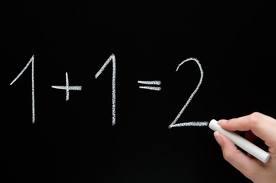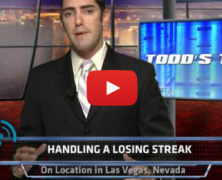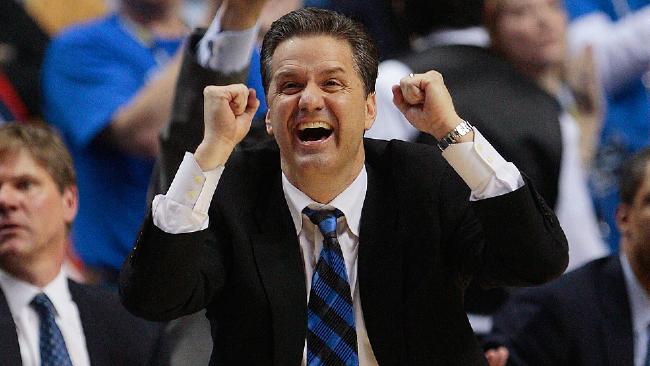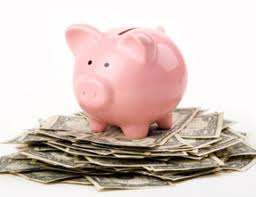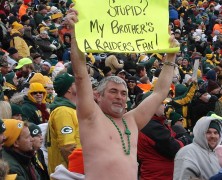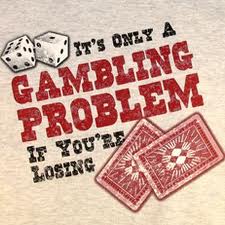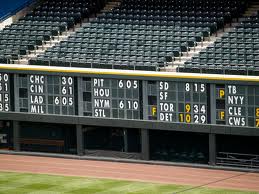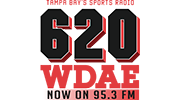Written by Steve Caruso (follow him on twitter @RusoCaruso) If you’re like the rest of the public when it comes to gambling on sports, you’re struggling and could use a few tips. We live in the information age but we still need to filter all the information ourselves to gain value from it. Experience is key yet a lack of patience and limited bankroll can get you lost along that path. Your average gambler doesn’t understand the market, money management, or even have an honest understanding of how much work goes into long-term success. More and more the successful handicappers are the ones implementing styles that resemble Wall Street methods while the ‘public’ is trying to get rich off Apple and Google…or in NBA terms, Miami Heat and Oklahoma City Thunder. Over the last six months I had the pleasure of shadowing a former gambler turned start up bookmaker. No, he wasn’t hitting at some ridiculous clip before getting recruited and offered a six-figure deal to work for the big boys. He barely hit 50% but had ideas, goals, and a way to turn his fortunes around. He went from talking shop with friends and acquaintances to opening up shop for friends and acquaintances. “My Guy” we’ll call him prefers to keep things simplified and remain anonymous but the events are on the record and now part of a “How Not To” guide in reference to handicapping success. Previously I said experience was the key and the biggest part of experience is remembering, “Don’t do that again.” Consider my position along side a new bookie; it was my own personal focus group for the business in betting. For “My Guy” on the other hand it was like getting a scholarship anywhere in the country...
The Case For and Against Flat Betting...
posted by Todd
We’ve all been there before: stuck racking our brain with how to structure units on a Saturday when 15 plays across 4 sports appear too good to pass up. Let me quiet a myth right here and now: there’s no fixed number of games to play but a bettor should always be cognizant of how much liability is being extended at any given time. I know this seems somewhat counter-intuitive for those just learning the ropes however like every other lesson in sports gambling, it will make sense in time as your experience grows and leads us to the discussion of units: the case for and against flat betting. Bettors talk about unit count all the time to keep tabs on their results. Its an effective way to share with friends and members of the gambling community relative strength of each play without disclosing how much makes up an actual bet. Units should rarely be weighted the same across all sports since every handicapper has his or her strengths and needs to strike from an advantaged position. The reality of sports betting is the better you become, the harder it is to play large amounts anywhere let alone in the smaller niche markets. However, I digress a bit from my main thesis of trying to make a case for and against the merits of flat betting no matter the sport, no matter the streak, and no matter the strength of the play. You know what it feels like; staring at a game all week you knew was worth way more than just a single play but you didn’t pull the trigger because of “sound money management principles.” Talk to the elite gamblers in the world and they’ll be the first to tell you recognizing...
Navigating the Hardwoods...
posted by Todd
Written by Mike Quinn (follow him on twitter @BroadStCappers) Action has tipped on the college hardwood yet again and as you navigate the first few weeks of non-conference games and early season tournaments, keep in mind that the conference schedule that starts in January will be here sooner than you think. The conference schedule is where big money can be made on the strength of situations. Let’s fast break through some of the scenarios that you should keep an eye out for come January. Multiple Road Games In A Row The difficult part of college basketball compared to college football is that the teams are playing multiple games a week. This leaves little rest and preparation time. Those conundrums are magnified when a school is forced away from home for upwards of a week straight at points. There is value to be had when fading these teams against a somewhat rested home opponent. The travel aspect of these situations can be tricky and one of the best ways to find out what the team’s travel plans are is to review the team’s website or a local beat reporter’s write-up. That type of information can be invaluable in situational analysis. Another angle to explore here is the first home game back after a long road-trip. If facing a sub-par opponent sandwiched between the road trip and a more talented foe, it is likely that between trying to get back to normal at home and looking ahead to a big game later in the week, that team will stumble a bit. That presents a great ATS situation for bettors to capitalize on periodically. Look Ahead to Big TV Games Another positive for bettors due to the condensed scheduling of college basketball is the old look ahead...
Projecting a Supercontest Winner...
posted by Todd
Written by Justin Zovas The Las Vegas Hilton NFL SuperContest has been expanding for years and 2012 contest boasts a record number of entries. With the SuperContest’s growth in popularity, this year’s payouts are more lucrative than ever. The standard for NFL handicapping excellence has been raised and if math is any indication, this year’s champion will need to push the envelope. We hear all the time about the gold standard, a winning % it takes be successful as a professional bettor. For a contest where every contestant enters a level playing field, we used raw numbers to give us our projected magic number. Before anyone gets started and says “you can’t use math for this!” we’re well aware anomalies happen and someone very well may put together a 17 week run for the ages. With this in mind, what would be more fun than to break down the contest using some math and statistics? Pick 5 games a week X 17 weeks = 85 total games n=85 50% chance to be correct, 50% to be incorrect (ignoring half point wins for pushes) p=.5 Binomial Distribution based on n=85 and p=.5 See graph below Expected Value=42.5 “wins” Normal distribution Mean, median, mode are all 42.5 Half of contests expected to finish below 42.5, half above 42.5 Variance= 21.25 Standard Deviation=4.61 Standard Deviations 68% of contestants will fall within one standard deviation of the mean 506.6 contestants will finished between 37.89 and 47.11 wins 95% of contestants will fall within two standard deviations of the mean 707.75 contestants will finished between 33.28 and 51.72 wins 99.7% of contestants will fall within three standard deviations of the mean 742.77 contestants will finished between 28.67 and 56.33 win It is impossible to calculate, the wins needed to...
Traits of a Winner
posted by Todd
by Mike Quinn (follow him on twitter BroadStCappers) The difference between being a successful sports investor and a long term loser is razor thin. Profitability comes down to a handful of wagers each year that make the difference on the annual balance sheet. However, what if that margin of error was based on intangibles rather than numbers themselves? As we examine the traits of a winner, we come to realize it takes more than knowing the weather, injuries, algorithms, or getting the best of the number to be a successful sports bettor. There are certain personality traits long term profitable bettors share and by making a few tweaks to your own approach, you can become part of that elite fraternity. You hear all the time the most successful bettors are emotionless. Long term successful handicappers don’t allow themselves to rise and fall with every touchdown or interception because the season is filled with huge momentum swings. More importantly, they don’t allow a single loss or a short-term losing streak to effect their next wager, a concept the betting public never understands. Bailing out or getting too emotional over a losing wager ends up creating a disastrous situation long term. In some cases, this is a learned trait; meaning an approach devoid of emotion can be cultivated. A prime real world example is you’re more apt to get into a bar fight at 22 then at 42 since maturation eliminates a lot of our propensity to make poor choices (although we’ve seen plenty of grown men try to exert old man strength, usually in SEC colors). Professional sports investors are realists. A realist is defined by Merriam-Webster as concerned with fact and rejects the impractical and visionary. This applies to sports wagering in two ways: (i) having realistic expectations and (ii) applying...
Sharp vs Square: Deconstructed...
posted by Todd
Written by Justin Zovas The terms “sharp” and “square” are two of the most commonly used words in a bettor’s vocabulary yet they’re thrown around way too loosely. The underlying assumption, based on the very definition of the two words, is that a sharp opinion is more accurate than a square opinion. In other words, the sharp side (or number) is considered to be more successful against the spread than the square side. Many bettors exhaust themselves attempting to identify sharp versus square sides while others deem it an exercise in futility. Either way, determining which side is sharp is a rather onerous task. One way for a novice bettor to help determine sharp versus square is to analyze line movements and bet percentages. In general, a bookmaker wants to receive roughly the same amount of action on both sides of a game (or so some would have us believe). Thus, when significant amounts of money are wagered on a particular side, the line will tend to move in that direction. Seems simple enough right? In many cases, however, the line will remain stagnant or even sometimes move in the opposite direction. When the majority of bets that are coming in are heavily weighted towards a particular side, the line can still move against that action in a phenomenon known as reverse line movement. This counter intuitive movement defies supply and demand but occurs because of a few factors: 1. The money coming in on the minority (lesser bet) is coming from bettors whose opinions the bookmaker respects (i.e. sharp money) 2. The book itself holds a contrarian view in favor of the minority side. That is, despite the large amount of money being bet on team A, the book still feels confident that...
FanDumb
posted by Todd
Follow the author on twitter (@trickynice) I’ve been a sports fan for as long as I can remember. My family still recounts how my motivation for learning to read came from a desire to understand baseball box scores. I was a fan in the purest sense of the word because salaries, contract demands, and the ability to bet were all lost on me. Looking back, I can’t believe I viewed sports through such innocent eyes. Ask most sports bettors and I think they would relay a similar story. No five-year old calls a bookie or uses an offshore account (I hope). Sports bettors begin as fans of a team then everyone seems to reach the conclusion that we know more than we actually do. How can we lose? This way of thinking usually hits in either high school or college; flush with a bit of spending money and an excess of stupidity where young gamblers tend to take their lumps during formative years. Some develop handicapping skills while many never do still, at the end of the day, most of us remain fans above all else. That balance between fandom and handicapper is a delicate one that every gambler must be willing to address if he plans to bet sports with any level of success. We all know the adage: “Bet with your head, not with your heart,” but I think its time to move beyond a simple saying and establish a few ground rules to guide the fan and the bettor within us. 1. Never bet against your own team Listen, I’m sure a few of you have bet against your favorite team and ended up with money in your pocket. Still, those successes don’t compensate for the crushing feeling when you bet...
The Fresh Perspective...
posted by Todd
Written by JSpacer6 As we approach football season, I wanted to take some time to share with those who plan on getting down on the games what I’ve learned in ten plus years of sports betting. I write this from the perspective of a third year law student, not a professional gambler. I don’t have the time to make my own power rankings or crunch stats and trends the way those who make a living do. Rather, like most of you reading this, I enjoy betting on sports, and believe i have finally found a place where I have learned to channel that enjoyment into a positive investment. Hopefully this advice can help those who have a sharp mind for sports betting, but havent yet figured out how to use it to turn a profit. If football is your sport, you have to know that you are in the tightest market that exists in the sports gambling world. The lines are cut throat in the NFL so in order to turn a profit a ruthless yet confident approach needs to be employed. What does this mean? On the one hand is perfect money management, which is by far the hardest thing to learn for novice gamblers. This has been said many times but you must have a bankroll that matches your bet size. If you want to bet $100 a game, you really should have at minimum a $3,000 bankroll. Personally, I have given up on “unit” betting. I know that by betting mostly college football with a little NFL I should hit around 55% of my plays and by seasons end this will give me the return on my investment I am looking for if I flat bet every game. Moreover, the increased...
Do you have what it takes?...
posted by Todd
to be a member of the toddstake writing team? As football approaches we’re looking for talented writers who want to attack sports from the gambling perspective. Whether it’s a funny story about a gambling experience, handicapping angle you want to share, or an intensive statistical analysis there will be other like minded readers out there interested in hearing what you have to say. All we ask is that you answer the questions below and submit your answers to todd@toddstake.com so we can highlight your talents for a fall chocked full of football, baseball, basketball, soccer, and all things sports wagering. Do you have any previous writing experience? (Don’t worry, its far from a requirement if you’re creative and insightful) What sports do you feel most comfortable discussing in depth? Why do you want to write for a sports gambling blog? How long have you followed the sports betting industry? Are you a sports bettor yourself and if so what sport do you find the most success? Do you have certain teams/schools you feel more comfortable discussing objectively? If you could have dinner/drinks with one person in sports, who would it be and why? Please don’t think of this Q and A as an interview or test we just want to get a feel for the individual talents of each interested writer and hopefully we can help launch a journalism start for aspiring sports writers regardless of previous writing experience. Thx to everyone who is interested in pursuing the opportunity and we hope to hear from all of you....
Inside the Numbers
posted by Todd
We talk all the time about numbers and value as it pertains to sports betting. For a few fleeting minutes Sunday morning, I decided to step outside the realm of the industry and explore the correlation between major league baseball payrolls and wins from 2002 to 2011. Some of the results you’ll find a bit shocking yet there are obvious examples (like the Yankees) where spending money has led to a direct correlation in franchise success. Conversely there are teams like the Mariners who have won 217 less games over that span so they’re avg cost per win places them in the top 5 and clearly doesn’t yield great return on investment. The 2 most impressive teams on this list? The Miami Marlins (2003) and St Louis Cardinals (2011) who won World Series championships within the 10 year window without eclipsing the $1M threshold in payroll cost per win. Between 2002 and 2011, there were 80 possible postseason births. Of those 80, 48 of them (60%) were gobbled up by teams who paid greater than $1M in player’s salary per win. It’s not shocking that the best “value” play during this time is the Minnesota Twins who have made the postseason 6 out of a possible 10 times despite only paying $778k for each of their 865 regular season wins. What’s the takeaway from this as a sports gambler you ask? The truth is value comes in all shapes and sizes so figuring out what your goals and objectives are upon entering a season makes setting realistic expectations easier. Treat your bankroll like a major league franchise with the understanding there are very few Yankee type bettors who can cover up mistakes by throwing money at a problem. Most bettors operate like small market teams meaning...


